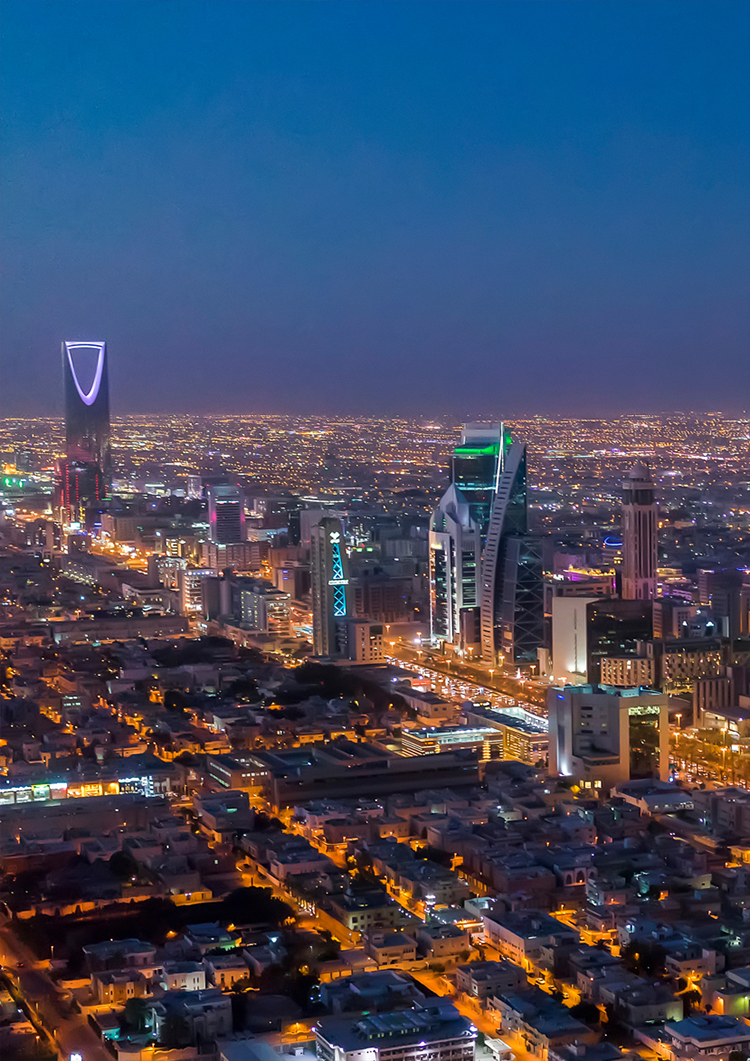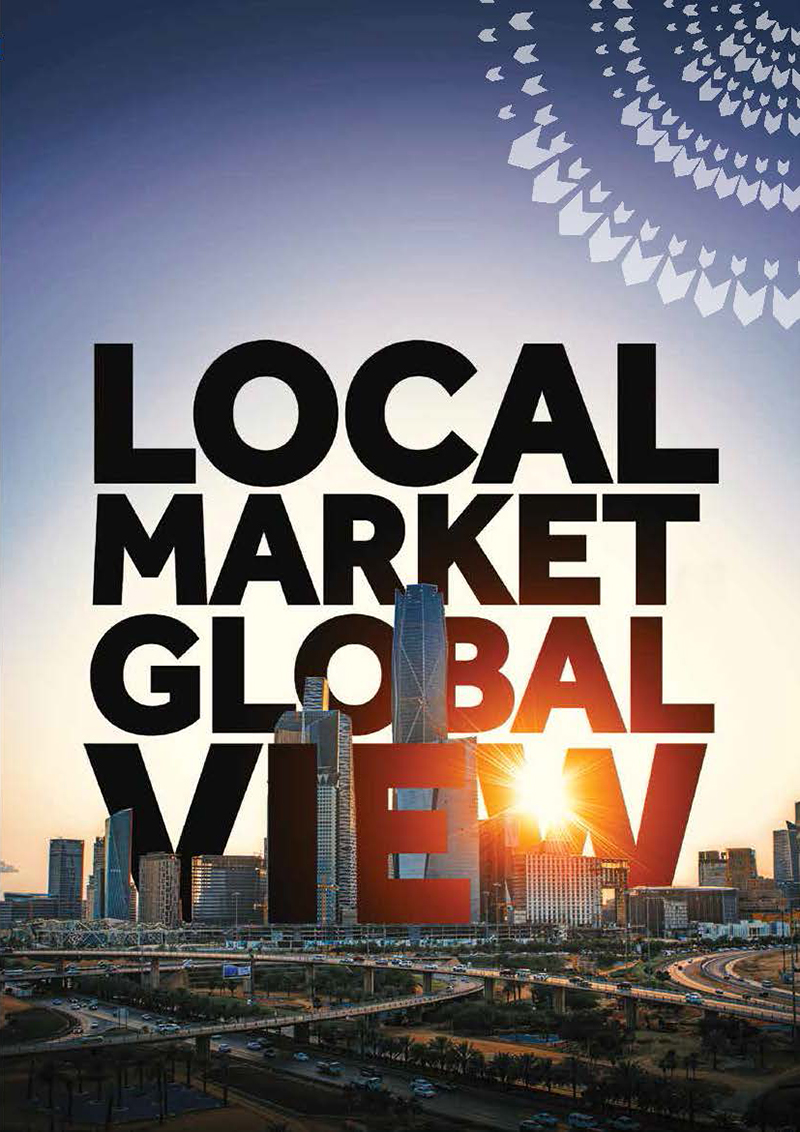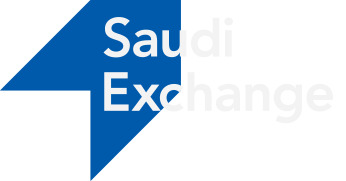INSIDE
200 LISTED Securities
“Capital market enhancements driving wider economic transformation”
An emerging global economic leader
In November 2020, the annual G20 summit was hosted by Saudi Arabia and held the rotating presidency for the first time. Despite the logistical challenges posed by COVID-19, which meant that the Leaders’ Summit was held as a virtual event for the first time, the event marked a successful end to the country’s leadership of the G20, during which it helped shepherd vital international collaboration on financial and economic issues.
Saudi Arabia’s membership of this club is a testament to the size and strength of its economy, which is currently the 18th largest in the world. The Kingdom is also the largest economy in the Gulf Cooperation Council (GCC) by far, and with a GDP valued at $700 billion in 2020, Saudi Arabia’s economy represents 25 percent of the Middle East and North Africa (MENA) region’s total output. Saudi Arabia benefits from a long-term track record of growth, high investment rates and stable monetary and exchange rate policies, and the country’s journey toward economic diversification is well under way.
Vision 2030: Delivering a thriving economy
Vision 2030 is the Saudi government’s comprehensive plan to guide the development of the Kingdom and move it closer to the circle of developed nations. The plan aims to diversify and liberalize Saudi Arabia’s economy by stimulating private sector growth, diversifying away from hydrocarbons, privatizing state-owned enterprises, and reforming markets.
Saudi Exchange directly supports several Vision 2030 goals including increasing the private sector’s contribution to the economy, drawing in more foreign investment, and growing the SME sector. Over the past years Saudi Exchange and the Capital Markets Authority have implemented an ambitious series of reforms to enhance the Saudi capital market’s effectiveness, foster an attractive environment for local and foreign investors, and align its regulatory frameworks with international best practices.
One of the key objectives of Vision 2030 is to build a larger role for the private sector within the Saudi economy – to 65 percent of GDP by 2030, up from 40 percent in 2020. With the help of the country’s sovereign wealth fund, the Public Investment Fund, combined with investment from Saudi companies and international investors, the country is successfully repositioning itself as a center for renewables, cultural and religious tourism, retail, mining, manufacturing, logistics, and technology.
Over 93,000 Saudis are being educated on government scholarships at world-class academic institutions around the world, and strong healthcare and education policy will also help to foster a healthy, productive, and highly skilled private sector workforce.
The Kingdom’s government is developing local supply chains and giving companies quotas for employing Saudi nationals to ensure that these new graduates will have jobs. The country also expects female participation in the workforce to rise to 30 percent from 22 percent in the next 10 years.
Ensuring the formation of an advanced capital market
As part of Vision 2030, the country’s Financial Sector Development Program (FSDP) will support the formation of an advanced capital market and create a thriving financial sector, with institutions able to support private sector growth.
A key objective is to make the Kingdom an attractive destination for international capital and financial sector reforms have already boosted the ranks of the country’s Qualified Foreign Investors (QFI) to 2,333 at the end of 2020 from 123 in January 2018, and the FSDP is on track to realize its goal of increasing the share of capital markets' assets as a proportion of GDP to 45 percent at the end of 2020 from 41 percent in 2016.
In addition to attracting foreign investors to its capital market, Saudi Arabia has implemented an ambitious series of legal and structural reforms to position the Kingdom as a world class-destination for foreign direct investment and to make it easier for domestic and international entrepreneurs to establish businesses. These reforms received external validation in the recent “Doing Business – 2020” report published by the World Bank. This report recognized Saudi Arabia as the most improved economy and saw the country’s ranking leap to 62nd out of 190 countries, up from 92nd place the year before.
The successful implementation of reforms by the Saudi Exchange and the Capital Markets Authority also paved the way for the Kingdom’s upgrade to emerging market status by all three of the world’s largest index providers - MSCI, S&P Dow Jones and FTSE Russell. The market’s inclusion in these indices occurred in phases during 2019, and the process was accompanied by record buying of Saudi shares by foreign investors from around the world, further expanding market participants in what was already one of the most liquid emerging markets in the world.

Saudi Aramco’s spotlight on the Saudi Exchange
As a result of these ambitious policy programs, there is a new sense of dynamism on the ground and the listing of Saudi Aramco in December 2019 drew global attention to the Kingdom’s economic progress. The world’s largest integrated oil and gas company, producing one in every eight barrels of crude oil globally, Aramco has been at the heart of the Kingdom’s economy for more than 80 years, forming the foundation of the nation’s development.
The successful listing was the largest in history and saw Aramco valued at $1.7 trillion when trading began. The IPO catapulted Saudi Exchange into one of the largest global stock exchanges based on market capitalization, and into the top three largest emerging market exchanges.
Saudi Exchange is now home to 207 listed securities with a combined market capitalization of more than SAR 9,102 billion (US$ 2,427 billion), and is highly liquid, with an average daily trade value of approximately SAR 8.3 billion (US$ 2.2 billion). From a regional perspective, Saudi Exchange accounts for 78 of the combined market capitalization of all MENA exchanges.
The Saudi Exchange has a clear vision to become an active player in global capital markets, a source of capital, an investment destination, and a regional financial hub that can lead capital market development in the GCC and the wider MENA area.
Delivering market enhancements & strengthening corporate governance
Driving forward the development of Saudi Arabia's capital market are the reforms implemented by the Saudi Exchange and the Capital Market Authority. These include the introduction of an independent custody model, with the Kingdom establishing an independent clearing house known as Muqassa to provide clearing services, centralize counterparty risk management, and guarantee the settlement of all assets traded on the Saudi Exchange.
In addition, the Kingdom set up a securities depository center known as Edaa to provide a variety of registry, post-trade, and consolidated reporting services.
Further post-trade infrastructure enhancements included the implementation of a T+2 settlement cycle, central counterparty clearing and a delivery versus payment (DVP) system, including the segregation of custody, settlement, and covered short-selling. These infrastructure enhancements have helped to pave the way for the introduction of more complex asset classes, and the recent introduction of the Kingdom’s first derivatives market including the introduction of MT30 index futures trading.
Market reform measures have included strengthening corporate governance rules that improve transparency and enhance the rights of shareholders and company boards, and the introduction of a comprehensive, first-of-its-kind, post-listing support program to help Saudi-listed companies improve the quality of their investor relations.
The Saudi Exchange also joined the UN Sustainable Stock Exchanges Initiative as a Partner Exchange, demonstrating its commitment to achieving the environmental and social targets of the UN’s Sustainable Development Goals.
As a result of these and other initiatives, Saudi Arabia’s global shareholder governance rank jumped from 77th in 2017 to 2nd overall, and 1st among G20 economies in 2019 in the World Economic Forum’s Global Competitiveness report.
Looking ahead, the Saudi Exchange has ambitious plans to further enhance the market and ensure the Saudi capital market becomes both an even more attractive global destination for investors and a source of capital. These plans include the launch of a market-making program, new rules governing mergers and acquisitions, and new listing and offering rules to make these processes easier and faster.
Paving the way for index inclusion
The growth of international investor confidence in the Saudi market was one of the driving forces behind the market’s full inclusion into the leading emerging market and global indices in 2019, and achievement of this status represented an important milestone in advancing the Saudi capital market and attracting foreign investors to the Saudi Exchange.
Saudi Exchange phased introduction into the leading emerging market and global indices resulted in record buying of Saudi shares by foreign investors. Trading data showed that at the end of 2020, the total holding value for foreign investors is SAR 208 billion, or the equivalent of 55 billion.
This represents 2.29% of issued shares on the market, or the equivalent of 12.79 percent of the total free float of the market.
Importantly, market enhancements and index inclusion are spurring the creation of the full-fledged financial ecosystem, necessary to sustain the market’s future growth and development. Major global asset managers have recently launched exchange traded Saudi Arabia investment funds, further broadening international investor interest in the Saudi market.
Launchof MT30 joint index
The launch of the MSCI Tadawul 30 index, jointly created by the Saudi Exchange and MSCI at the start of 2019, provides greater visibility of the market’s performance and has acted as a strong foundation for the development of index futures and exchange-traded products.
Beyond 2020: The Saudi Exchange and the Kingdom in the next decade
Saudi Arabia has made great strides in transforming its economy and capital markets in recent years, and the Kingdom has ambitious plans to build on this strong foundation.
The Saudi Exchange is committed to playing a key role in these plans and ensuring that both the exchange and the innovative and diverse range of companies listed on the Saudi market remain the vanguard of the transformation of the Kingdom’s economy.
In the following pages, we will introduce you to some of these companies, their leaders, and their strategies to help drive the transformation of the Saudi Arabian economy.


